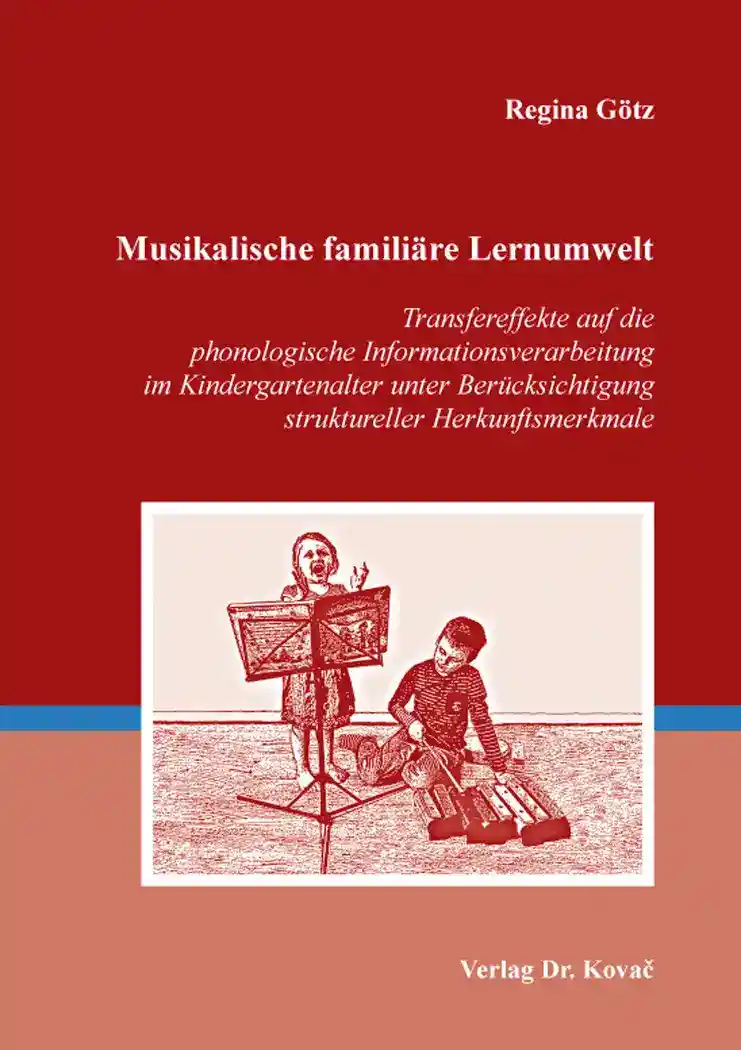Regina GötzMusikalische familiäre Lernumwelt
Transfereffekte auf die phonologische Informationsverarbeitung im Kindergartenalter unter Berücksichtigung struktureller Herkunftsmerkmale
Schriften zur Entwicklungspsychologie, volume 42
Hamburg 2022, 532 pages
ISBN 978-3-339-13038-9 (print) |ISBN 978-3-339-13039-6 (eBook)
About this book deutschenglish
In early childhood, learning processes often take place in a playful manner through interaction with the everyday environment. The family, as the first environment into which a child is born, has a decisive influence on all developmental processes of the individual. While the far-reaching importance of the family educational environment for the literacy and numeracy learning environment is now well established, research on the musical learning environment is still in its infancy.
Music, which has fascinated since time immemorial, assumes a very essential importance in the course of human development - especially in the first years of life, when music and language are not yet separate entities, but their boundaries sometimes become blurred.
The book first provides a comprehensive overview of the close relationship between the two domains of language and music and of the positive influences of musical activity on the development of linguistic and written language skills and their precursors. Special attention is given to the transfer effects of musical activity, especially in the context of the child's family learning environment.
With regard to the effects of the musical family learning environment on children's musical competences, a reproductive-active measurement procedure was comparatively analysed with a measurement procedure in the receptive-differentiating response format. Child reproductive singing performance was also examined as a promising indicator of child musical competence in a subsample of children. Statistical analyses of the process variables of the musical family learning environment obtained through parent interviews yielded differential effects of long-distance transfer on the investigated written language precursor competences of written language acquisition of phonological working memory, information processing speed, and phonological awareness. The final structural equation model developed in a longitudinal design proved to be informative and promising.
Overall, the present work demonstrates that differential transfer effects can be evoked with music at an earlier time point than is possible with purely linguistic stimuli.
Kontaktmöglichkeit
Keywords
EntwicklungspsychologieFamilieFrühkindliche LernumweltKindliche LernumweltMusikalische LernumweltMusikpsychologiePsycholinguistikSprachentwicklungIhr Werk im Verlag Dr. Kovač

Möchten Sie Ihre wissenschaftliche Arbeit publizieren? Erfahren Sie mehr über unsere günstigen Konditionen und unseren Service für Autorinnen und Autoren.
